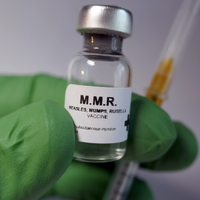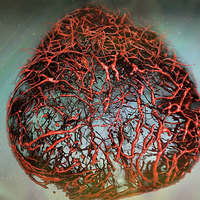Login
Subscribedisease & medicine

New Map Shows Brain Changes Associated with Alzheimer’s
Catherine Offord | Feb 4, 2019 | 2 min read
The protein expression data, which are freely available online, could help identify new drug targets for the disease.

Specific Gut Microbes Linked with Depression: Study
Ashley Yeager | Feb 4, 2019 | 2 min read
The research is among the first to find the connection in humans.

Image of the Day: Gut Reaction
Carolyn Wilke | Feb 4, 2019 | 1 min read
Immune cells in the mouse gut help recognize damaging compounds and prompt intestinal stem cells to repair DNA.

Immune Response to Gut Microbes Linked to Diabetes Risk
Abby Olena, PhD | Feb 1, 2019 | 3 min read
Researchers find that it’s not just high-risk genes, but how children’s bodies respond to their own intestinal microbiota that relates to future diagnoses of type 1 diabetes.

Molecules Found in Ginger Remodel the Microbiome
Katarina Zimmer | Feb 1, 2019 | 3 min read
Small RNA-containing particles in ginger root are found to promote the growth of beneficial bacteria and alleviate colitis in mouse guts.

Infographic: How Ginger Remodels the Microbiome
Katarina Zimmer | Feb 1, 2019 | 1 min read
Small microRNA-containing particles found in the plant can boost populations of healthy gut bacteria, and even improve colitis symptoms in mice.

An Algorithm to Predict the Age of Your Lab Mice
Anthony King | Feb 1, 2019 | 5 min read
Researchers develop an app that can estimate the biological age of a rodent from its mug shot—and could give a boost to the science of human aging in the process.

Boosting Plants’ Uptake of Vitamins and Minerals
Ashley Yeager | Feb 1, 2019 | 4 min read
With genetic tweaks, researchers can coax corn and other cereals to take in more iron, but sometimes the plants rebel.

A Keen Sense of Smell Appears to Go Hand in Hand with Spatial Memory
Shawna Williams | Feb 1, 2019 | 3 min read
Authors of a small study say the two abilities likely evolved in tandem.

Measles Outbreak Worsens in Washington State
Catherine Offord | Jan 28, 2019 | 2 min read
Most of the 34 patients are under 10 years old, and almost all have been confirmed as unvaccinated against the virus.

Image of the Day: Conjoined and Separated
Carolyn Wilke | Jan 28, 2019 | 1 min read
Now two years old, the Delaney twins were born joined at the head and were successfully separated in June 2017.

Gum Disease Could Drive Alzheimer’s: Study
Ashley Yeager | Jan 24, 2019 | 2 min read
An enzyme of the bacteria Porphyromonas gingivalis has been found in the brains of patients with the disorder, and causes neurodegeneration in mice.

Drop in Infant Type 1 Diabetes Linked to Rotavirus Vaccination
Catherine Offord | Jan 23, 2019 | 2 min read
Results from an observational study find that the introduction of a routine vaccine in Australia coincided with a fall in the incidence of the autoimmune condition.

Past Dengue Infection Appears to Protect Children from Zika Symptoms
Carolyn Wilke | Jan 23, 2019 | 1 min read
Children were 38 percent less likely to show signs of Zika infection if they had previously had dengue.

Fecal Transplants More Successful from “Super-Donors”
Shawna Williams | Jan 22, 2019 | 2 min read
A review finds that for several conditions, poop from certain healthy people is more likely to provide relief for recipients.

Protein Changes Detected in Blood Years Before Alzheimer’s Onset
Jef Akst | Jan 21, 2019 | 2 min read
The observation could pave the way for a blood test to predict disease progression in people with a genetic predisposition to developing the neurodegenerative disorder.

Blood Vessels Grown in a Petri Dish Closely Resemble Human Ones
Catherine Offord | Jan 18, 2019 | 2 min read
The lab-made organoids are fully functional, the team reports, and could aid the study of vascular-related diseases such as diabetes.

Image of the Day: Broken Needles
Carolyn Wilke | Jan 17, 2019 | 1 min read
A long-acting contraceptive patch with microscopic needles releases a drug slowly over time.

More Cancer Mutations, Better Immunotherapy Outcomes
Catherine Offord | Jan 15, 2019 | 2 min read
Immune checkpoint inhibitors are generally most effective against tumors with more genetic mutations, according to a new study, although the relationship isn’t true for all cancers.
